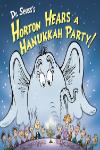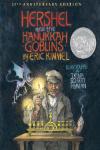Books about Stefan Zweig

 What is it about Stefan Zweig that has so captured the contemporary imagination? In the last year alone, the elusive Austrian writer was the named inspiration for Wes Anderson’s recent film The Grand Budapest Hotel and the subject of no fewer than three studies newly available in English: Laurent Seksik’s The Last Days, a fictionalized account of his suicide in Brazil; Oliver Matuschek’s Three Lives: A Biography of Stefan Zweig; and George Prochnik’s The Impossible Exile, a highly personalized but very sensitive and accurate account of Zweig’s uprooting that has prompted sentimental essays in nearly every major American newspaper and magazine. Yet in the cultural milieu of fin-de-siècle Vienna, the same environment that produced Arthur Schnitzler and Hugo von Hofmannsthal, Robert Musil and Joseph Roth, Zweig was neither genius nor alchemist. We remember him first as a tragic victim of his own dark times, second as a Viennese bon vivant who knew everyone worth knowing—Sigmund Freud, Theodor Herzl, Romain Rolland, the list goes on—and only third as a writer, whose work has been called the “Pepsi of Austrian writing.”
What is it about Stefan Zweig that has so captured the contemporary imagination? In the last year alone, the elusive Austrian writer was the named inspiration for Wes Anderson’s recent film The Grand Budapest Hotel and the subject of no fewer than three studies newly available in English: Laurent Seksik’s The Last Days, a fictionalized account of his suicide in Brazil; Oliver Matuschek’s Three Lives: A Biography of Stefan Zweig; and George Prochnik’s The Impossible Exile, a highly personalized but very sensitive and accurate account of Zweig’s uprooting that has prompted sentimental essays in nearly every major American newspaper and magazine. Yet in the cultural milieu of fin-de-siècle Vienna, the same environment that produced Arthur Schnitzler and Hugo von Hofmannsthal, Robert Musil and Joseph Roth, Zweig was neither genius nor alchemist. We remember him first as a tragic victim of his own dark times, second as a Viennese bon vivant who knew everyone worth knowing—Sigmund Freud, Theodor Herzl, Romain Rolland, the list goes on—and only third as a writer, whose work has been called the “Pepsi of Austrian writing.”
Read full article in Tablet Magazine by Patrice Higonnet and James McAuley















